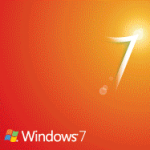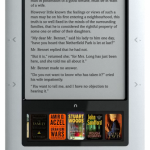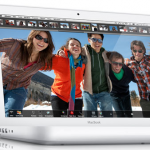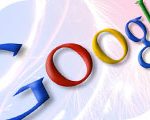How would you rewrite Google's '10 Things?'

content behind a paywall and remove that content from crawling by Google search bots. Is Google doing evil to traditional media publishers like Murdoch, by making their content easily available for free? In August, over at my Oddly Together Website I tackled this topic in post: "Can You Charge for News? Ask Google."
As Google's might increases, it's reasonable to ask how the company's business practices are changing and whether or not it can stick to corporate philosophy "Ten things we know to be true." Perhaps the best known is No. 6: "You can make money without doing evil." But can Google does this? That's the question I pose to Betanews readers.
Firefox turns five: Thanks for giving us a choice

Birthdays in the world of tech normally aren't that big of a deal for most folks. We tend to feel as much nostalgia toward hardware, software and services as we do toward flu shots and oil changes for the car. But even if you don't use Firefox -- and by the numbers, that's over 60% of you -- it's difficult to underestimate this once-upstart browser's impact on the way we experience the Internet, and how our software is developed in the first place.
Replacing monopoly with choice
How RIM can avoid a premature endgame for BlackBerry

Once not so long ago, if you wanted bulletproof e-mail on a mobile device, you bought a BlackBerry. Research In Motion, the company that practically defined wireless messaging a decade ago, has done quite nicely for itself since then, garnering over 56% of the market for smartphones in the US and about 20% of the overall wireless handset market that includes smartphones as well as conventional feature phones. Its end-to-end encryption and still-unique service paradigm that routes messaging traffic through secure Network Operations Centers further endeared the platform to enterprise buyers, even as the company was successfully pushing the franchise into the consumer space.
Unfortunately for RIM, nothing stays the same in the increasingly competitive wireless market. The BlackBerry is no longer a market of one, and many of the features that defined the platform -- including push e-mail and enterprise-class security -- are no longer unique. Worse, the critical feature set for a modern smartphone has expanded to include rich Web access, broad application availability, and an integrated, Web services-aware operating system. It's no secret that the BlackBerry platform lags in all of these areas with its fine-for-the-1990s browser, relatively paltry app ecosystem, and an OS that despite regular incremental updates still betrays its decade-old roots.
Is there any sense to Microsoft's 800 layoffs?

Today's Microsoft layoffs -- 800 employees -- are surprising. Following the last round, executives seemingly slammed the axe into the chopping block, even though the full number of 5,000 layoffs planned over 18 months hadn't been met.
Late last night, TechFlash first reported that layoffs would be coming today. Microsoft started informing employees today, in what surely has to be an unexpected misfortune. So much time has passed since the last layoffs, the threat of more surely faded. For good reasons. Until these 800 pink slips, there were reasons to be cheerful on the Microsoft campus.
Performance drain: The first public perception test of the Windows 7 era

The key selling point for Windows 7, as emphasized in a concerted advertising campaign that stretches across both TV and the Web, is that it's leaner, simpler, and faster. It doesn't have to complete the phrase "faster than..." because we all know how to complete that phrase. Microsoft's bet for Windows 7 is that users smart enough to complete that phrase, care.
So if some of the comments Betanews has been receiving about Internet Explorer's recent problems being a non-event, or a "YAWN," really did reflect reality, then Microsoft has already lost the bet.
Must Microsoft Store copy Apple Store to succeed?

Over the last 10 days, Microsoft has opened two retail stores, in Arizona and California, and a café in France. Bloggers and journalists largely dismissed the retail outlets as Apple Store knock-offs, which is surprising considering reports of 1,000 or more people lined up for the second opening in Mission Viejo, Calif. That said, the numbers aren't confirmed and a free music concert likely bolstered them.
Over the weekend, ifoAppleStore chronicled the Mission Viejo-store opening -- albeit with some pro-Apple, anti-Microsoft commentary -- and large gallery of photos. From the text and pics, Microsoft Store similarities to Apple Store are obvious.
Antisocial media: Lack of safeguards is killing the experience

Say it with me, everyone: Facebook sucks.
I don't mean that in a literal sense, of course. But the growing number of obviously hacked status updates and phishing-like scams coming from folks we all thought were our friends has me wondering if Facebook is having more than a little trouble keeping a lid on the kinds of nasties that have already ruined e-mail, Usenet, and while we're at it, the Web in general.
How to solve the net neutrality issue

The Federal Communications Commission (FCC) recently voted to move forward on a rule-making process that could lead to new government regulations for the Internet. That is what the FCC and some activist groups want, although they claim to be supporting only "neutrality." Even key players seem confused.
The Open Internet Coalition (OIC) says neutrality "is about keeping the hands of several powerful network operators -- AT&T, Verizon, and Comcast -- off the Internet, preventing them from taking steps to change the basic open nature of the Net that has led to its success."
Non-exclusive iPhones: Has Verizon waited too long?

I've never been a fan of exclusive deals between handset manufacturers and wireless carriers. I understand why they appeal to the Apples and the AT&Ts of the world in the first place, but it ticks me off that sweet deals like this always seem to leave consumers out in the cold. They limit choice and competition, which tends to keep prices artificially high for longer than they should, and they make it easier for carriers to maintain the kind of old, customer-unfriendly practices that have long stained the industry.
When a given gotta-have-it device is available only through one carrier, consumers are forced to make a Hobson's Choice in that they can choose by device, or by carrier, but not both. And if they dislike the exclusive carrier for any reason, they either hold their noses and sign, or learn to live with another carrier's second-rate hardware.
Nokia lawyers up, chooses to fight Apple in court rather than the market

If timing is everything in business, Nokia apparently didn't get the memo. Apple's iPhone has been on sale for about 28 months now, but only last week did Nokia file a wide-ranging lawsuit in Delaware District Court that covers no fewer than ten alleged patent infringements.
This isn't anything new in the tech industry. In a business where intellectual property accounts for a disproportionately huge slice of any given product's value proposition -- and ultimately its market success -- fights over who came up with what idea first are common. For example, Research in Motion has paid out over a billion dollars over the last three years to settle two significant patent lawsuits that, if left unresolved, could have shuttered its popular BlackBerry devices for good.
Our love/hate relationship with Microsoft: What happens now?

Over the years, Microsoft has been vilified for more reasons than you can shake a memory stick at. But the world is bigger than Microsoft; and if we're going to take the time and effort to hate something, it makes more sense for it to be something deserving of hate -- like government corruption, unsanctioned access by certain countries to nuclear missiles, and diseases that evolve faster than our ability to comprehend them. Tossing bile at a mere software company would be too easy if it weren't so pointless.
As Microsoft releases Windows 7 unto a world that has been well-trained to be suspicious of such events, now is a pretty good time to reconsider why so many people have for so long held a special degree of contempt for the company. It's also an ideal time to question why this has been the case in the first place, and figure out what our attitudes should be from this point forward.
Microsoft's 'Have it Your Way' confronts Apple's 'Have it Our Way'

Burger King has long used marketing slogan "Have it Your Way." I saw something different during my first trip to New York City 30 years ago inside the Times Square Burger King. There was an express line with sign: "Have it Our Way." Which line was longer? The one where people could choose how their burgers were fixed.
Today, Microsoft officially launched Windows 7 in New York, emphasizing choice and customer participation. Choice is a longstanding Microsoft marketing and product principle. Participation is a longstanding approach to Microsoft product development. With Windows 7, Microsoft is bringing the two together for the product marketing. Have it your way. "Excuse me, sir. Is that Windows 7 for here or to go?"
The Crook in the Nook: Barnes & Noble ebooks are overpriced compared to Amazon

Yesterday, I excitedly preordered Barnes & Noble's "Nook" ebook reader. Today, I cancelled the order -- and I'm none to happy about it. Why can't Barnes & Noble learn from its past mistakes? The bookseller's digital titles are way overpriced -- at least compared to Amazon (Sony charges even more than both booksellers for many titles).
Quick examples -- and more will come later in this post: Twilight by Stephanie Meyer: $6.59 from Amazon; $8.79 from B&N. Philip K Dick's Do Androids Dream of Electric Sleep?: $8.38 from Amazon; $11.20 from B&N. (Sony charges $9.89 for the first and $9 for the second.)
Apple declares war on the entire PC industry

There is absolutely nothing coincidental about Apple launching new products today. The big product launch is Apple's first preemptive marketing strike against Microsoft, Windows 7 and the entire PC industry. It's a bold move exploiting a position of strength against an industry weakened by low-margin, low-priced netbooks.
Windows 7 officially launches in two days. Best Buy already has Windows 7 PCs on sale, but not for purchase. Dell started taking Windows 7 over the weekend. Gartner is telling businesses they must upgrade to Windows 7, despite any hardships migrating from Windows XP. Microsoft is priming the marketing pumps. The PC industry is collectively turning its attention to Windows 7, which Microsoft is trying to launch with some bang rather than a whimper.
Giving it all to Google: It may be too late to complain

The problem is not so much Google itself. The problem is with the self-absorbed-yet-insecure nature of a plurality of industries, media being just one among them, whose collective inability to plan how they would conduct business in the era of digital multimedia communication, led them to essentially give up, give in, and let Google build it all for them.
Conducting business is all about staying visible, not just in front of the public's eyes but in its conscience as well. It's why Coca-Cola continues to advertise itself even though folks are likely to go on drinking it anyway (there's a great gag about this fact in Ricky Gervais' latest film, The Invention of Lying). At a time during the evolution of the Internet when businesses were busy trying to construct analogs for physical business entities -- such as online shopping malls with 3D virtual escalators, online business directories that were alphabetized, and "portals" that sought to become the world's centers for particular industries, such as dog grooming -- along came an Occam's Razor that appeared to make everything much simpler: It was the idea that visibility, that critical ingredient of all business relationships, can be engineered.
Recent Headlines
Most Commented Stories
BetaNews, your source for breaking tech news, reviews, and in-depth reporting since 1998.
© 1998-2025 BetaNews, Inc. All Rights Reserved. About Us - Privacy Policy - Cookie Policy - Sitemap.